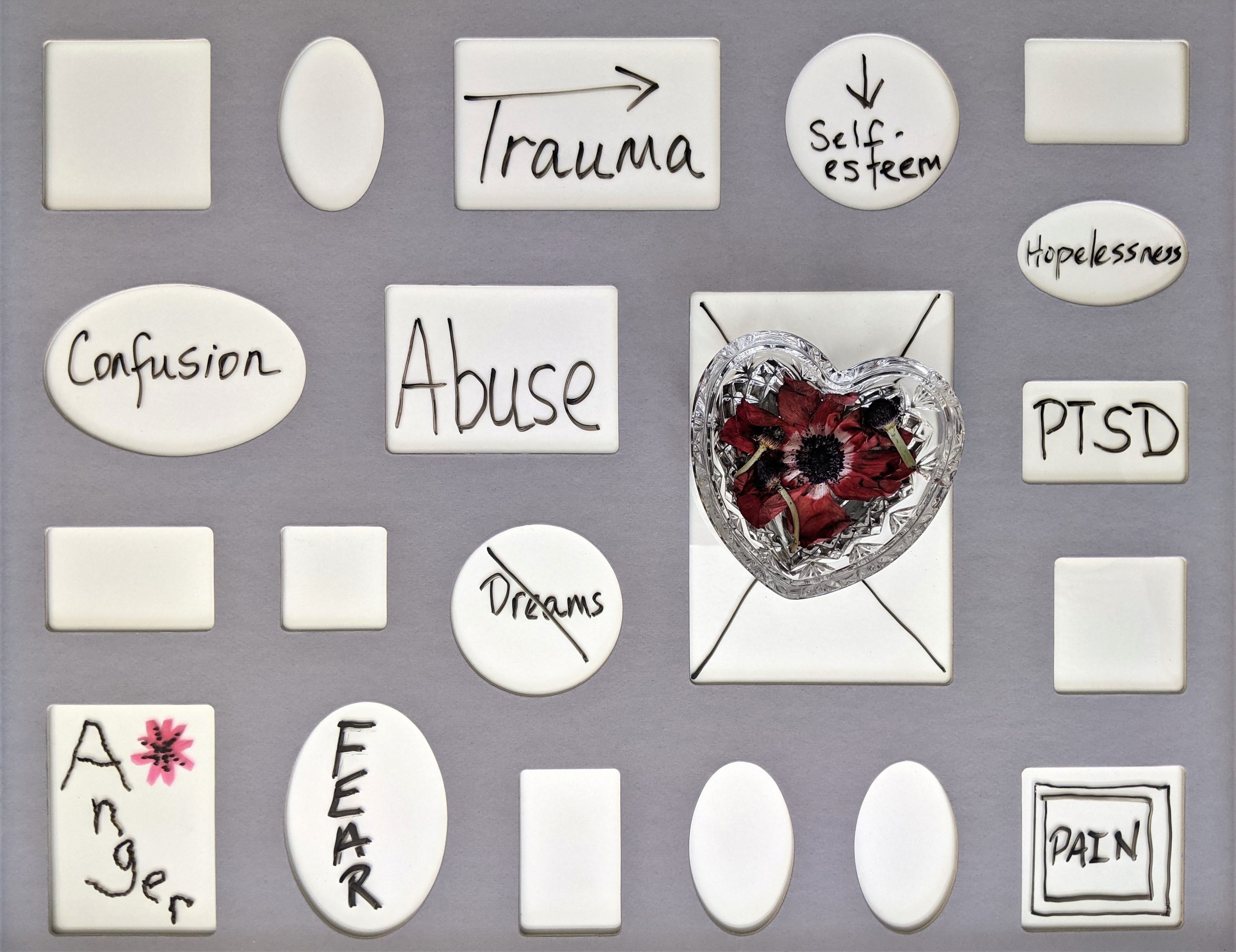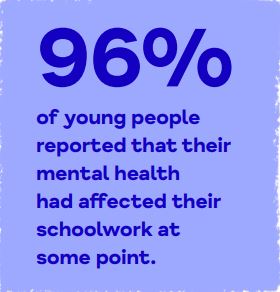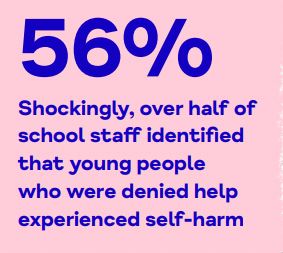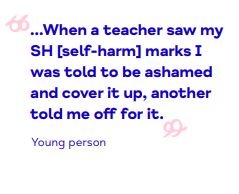Might my child’s self-harm escalate to suicide?
It is distressing enough to think about your child self-harming, but what about the extra worry that it could get worse and your child could be considering suicide?
Many parents are deeply concerned about this, especially when they hear the facts that young people with a history of self-harm are:
- 6 times more likely to make a suicide plan
- 9 times more likely to make a suicide attempt
The truth is, only a small proportion of young people who self-harm become suicidal. The majority of them say that they have never considered suicide (60%).
What’s the BIG difference between self-harm and suicide?
Although self-harm can seem like it is directly linked to suicide, they are very different. Self-harm is a way to cope with life, compared to suicide which is a way to end it. The thinking involved is often very different because self-harm can be a way to help manage life and keep going, which is the opposite intention to suicide. Also, for some children and teens, the pain...
5 things NOT to say to a child who self-harms
Supporting a child or teen who self-harms, will be one of the most stressful and difficult times of your life. But you have to be careful about showing your child how upset and worried you are. You see, there will be many times when they’ll trigger a strong knee-jerk reaction from you, but it’s often advisable to hide this. Your unrestrained reaction can be unhelpful, as it reveals all the strong anxieties and worries you have inside. What they actually need to see in you is a strong, stable, loving parent, that they can rely on during this tumultuous time in their life. Even if it’s just a front!
So in our experience, knowing what NOT TO SAY at times you feel triggered and upset is really important to work out in advance.
Here are 5 things NOT to say to your self-harming child:
#1 Please don’t do it again today
This statement can come from a place of love and wanting to protect your child. That’s totally understandable. But pressuring...
Why do young people find it hard to stop self-harming?
Why do young people find it hard to stop self-harming?
There can be many reasons why your teen is self-harming, but there is one main reason they find it so hard to stop – although deeply unhealthy, it’s the most effective coping mechanism they’ve found for the troubles in their life!
But the short-term relief they feel after self-harming, soon gives way to strong negative feelings, which in turn need to be managed. And that's why young people find themselves in an endless cycle of self-harm.
Why does your teen self-harm?
In my experience, the most common reasons for young people self-harming are:

Why is it so hard to stop?
When asked, a lot of young people can't explain why they’re self-harming, but it’s commonly understood that the pain of hurting themselves is a distraction from...
‘I found strength I didn’t know I had’: Mum helps other parents after realising her daughter was self-harming
Here’s a great article by from the Evening Express in Scotland. It’s about our founder - Claire Sutton and tells the story of how Claire supported her own teenage daughter’s recovery from self-harm...and now uses her experience to support other parents all around the world through the Youth Mental Health Foundation.

Claire Sutton admits it’s a very difficult experience to process when you find out your child is self-harming.
But she soon learned not to react with her own emotions to help her daughter Jade in the best way she could.
It would be a tough time for any parent. And it was a really intense time for Claire who was pregnant, exhausted, and caring for a baby, all while her husband was working away from home.
She is now turning her attention to families in the north-east, helping them through the potentially similar issues she faced herself.
‘There’s so many questions parents have’
“When you...
5 common myths about self-harm
There are a lot of myths about children and teen’s self-harming in the media that need correcting. Some of these myths cause parents even more fear and alarm and are more than unhelpful.
Knowing the differences between what is true and not true will help you better understand why your child is self-harming and how you can better support their recovery.

Self-harm always leads to suicide
The most frightening thing for a parent is the thought that your child could be thinking about ending their life. The assumption that self-injury always leads to suicide is NOT TRUE.
Self-harm is actually a way of coping with emotional stress and the way your child seeks some sort of relief from how they’re currently feeling.
Examples of things that could be behind your child’s self-harm are include:
| They may feel lonely | Underlying mental health condition |
| Low body confidence | And many more everyday stressors |
| Bullying | Pressure at school |
| ... |
Is your child self-harming in ways you haven’t spotted?
Discovering that your child is self-harming is profoundly shocking and upsetting for every parent; but it’s quite likely that your child is self-harming in ways you haven't even noticed.

Self-harming is an epidemic that affects young people across the world*:
- 1-in-6 young people self-harm in the UK
- 1-in-5 teen girls self-harm in the USA
- 1-in-4 teen girls self-harm in the Australia
Types of self-harm
Most of the coverage of self-harm in the media focuses on cutting, referencing children with self-inflicted wounds on their arms. But the reality is, this is only one form of self-harm, and many other forms get overlooked.
The following list will help you identify other ways that your child may be self harming:
Most Common
|
|
|
|
|
|
Less Common and often overlooked
|
|
|
These often...
New report on young people's mental health released by MIND

‘Not Making the Grade’ is a new report from UK mental health charity MIND.
The report has found that young people in the UK are:
1) unable to access mental health support.
2) having their mental health problems treated as bad behaviour.
We agree with Mind’s recommendations that investment needs to be channeled into early support hubs and that there needs to be transformation in the approach to discipline in schools
...BUT we feel there needs to be a FAR greater emphasis and investment in educating parents to support their child/young person's healing too.



You can read the full report here: https://www.mind.org.uk/media/8852/not-making-the-grade.pdf
If you're the parent or guardian of a young person who self-harms, you can download the Youth Mental Health Foundation's free e-book, guiding you to support your child's recovery: www.youthmentalhealthfoundation.org/e-book
Youth Mental Health Foundation Meets Mel Stride MP for South Devon

We want to say a big thank you to Mel Stride MP for Central Devon, who invited our co-founder, Joel Sutton, to meet and discuss the state of young people's mental health in Devon.
Mel was particularly interested in why there has been such a dramatic increase in the number of young people self-harming in recent years and how parents, carers and family members can support a child/young person in crisis.
We're grateful for Mel's offer of support for our projects and fundraising going forward.
#SelfHarm #SelfHarmSupport #Parenting #Family #TheHorizonPlan #MentalHealth #TeenMentalHealth #MentalHealthSupport
How Many Hours Sleep Do You Actually Need?

It’s not surprising that many of the parents of self-harming young people that we help have problems sleeping. The stress, anxiety and worries about the future play on their minds and eat into their sleep.
Parents either tell us that they struggle to fall asleep or have restless sleep full of troubling dreams which mirrors their mental and emotional state.
Either way it’s so much harder to be calm, positive, patient, optimistic when your craving an opportunity to crawl into bed.
But how much sleep do we ACTUALLY NEED?
It’s commonly thought that 8 hours of sleep a night is the magic number.
And the evidence shows this is correct,
In one of many experiments, researchers took study participants into a laboratory with no sunlight or clocks and, at night, gave them nine-hour-long opportunity to sleep. The results were always the same: even when provided with more time, humans will typically spend an average of eight hours catching up on their Zzz.
So what happens...


